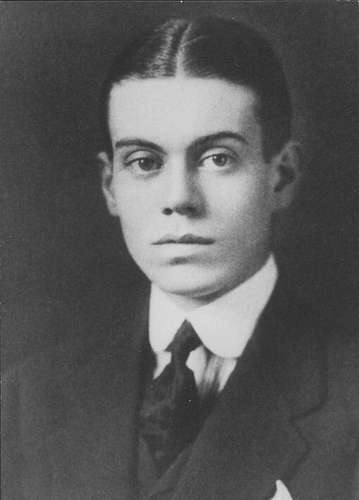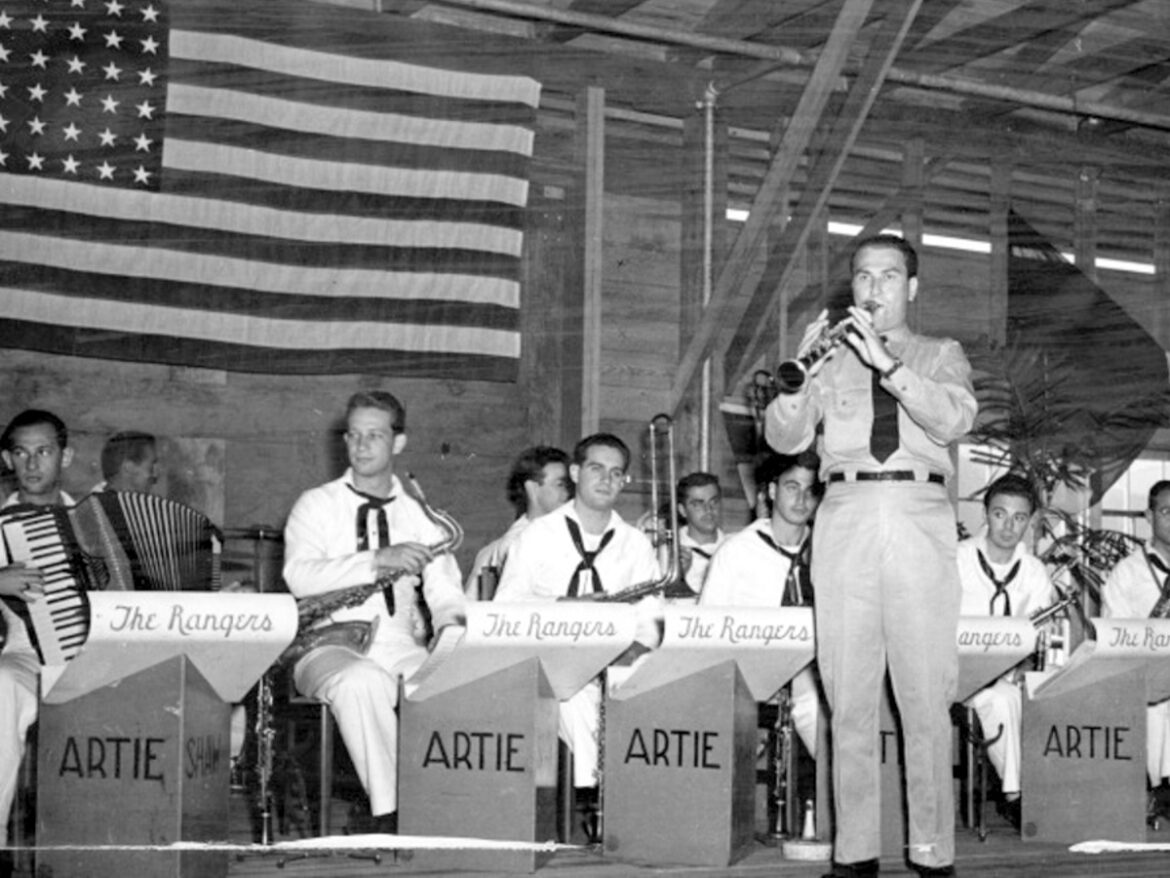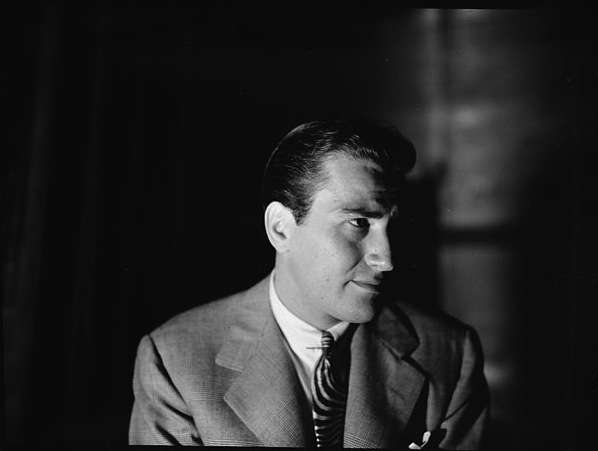Artie Shaw was a brilliant musician, an abusive husband and a complicated personality. All three of those qualities can be traced to his difficult childhood in New Haven.
He would become one of the finest jazz clarinetists ever and the most successful bandleader of his era, selling more than 100 million records. But he retired from the music business before he was 50 and developed a reputation for his wives rather than his music.
A Curious Alien
He was born Arthur Jacob Arshawsky on May 23, 1910 in New York City, the only son of Sarah Strauss and Harry Arshawsky. His parents were Jewish immigrants, his mother from Austria, his father from Russia. They ran a dressmaking business on sewing machines out of their basement apartment on the Lower East Side.
When Artie was seven, his family moved to a house in New Haven and resumed dressmaking. He was sent to the Dwight Street School, where he was taunted for being Jewish. He was told ‘we don’t want ton goddam Christ-killers saying the Lord’s prayer around here. Keep your dirty sheeny nose out of other people’s prayers.’
Artie Shaw later said Jewish kids growing up in average American WASP communities always became aware they were “some curious kind of alien.”
Now It’s ‘Shaw’
The bullying stirred in him a passion to succeed. In New Haven he found the way. As a boy he often sneaked into watch Poli’s Palace Theatre to watch vaudeville. A young saxophone player inspired him to save for the instrument. He worked for a summer at Gorn’s delicatessen and bought a C-melody saxophone at Wrozina’s Music Shop.
Harry Arshawsky, another bully, left his family when Artie was a teenager and moved to California. His abandonment foreshadowed Artie’s own troubled marriages – all eight of them.
At 15, he dropped out of high school, changed his name to Shaw and became a full-time musician. He played in local bands in places like the Wesleyan University fraternity houses, the Cinderella Ballroom and the Olympia Theatre in New Haven, the Bantam Lake summer resort in Litchfield and Morris. At 16 he left home and took up the clarinet. Eventually he returned to New York and became a session musician through the early 1930s.
Jewish Songs
By 1938, his career was floundering. He insisted on recording Cole Porter’s Begin the Beguine to a skeptical RCA producer. The producer said it was a song ‘nobody could remember from beginning to end.’ He then put it on the B side of Indian Love Call.
Shaw’s Begin the Beguine not only defined the Swing Era, it sold millions of copies, more than any instrumental recording in history.
(Watch Artie Shaw and his Orchestra play Begin the Beguine here.)

Cole Porter at Yale
Cole Porter – who lived in New Haven while attending Yale – said the secret to hit music was to write Jewish songs. Begin the Beguine, like many of Porter’s hits, has an unmistakable eastern Mediterranean, minor key melody.
Artie Shaw then went on to become the most popular bandleader of the Swing Era, selling more than 100 million recordings. But his extraordinary musical career was overshadowed by the women in his life. He married eight different wives, including Lana Turner and Ava Gardner, dated Judy Garland and hired Billie Holiday as a vocalist. Holiday quit during a tour of the South because she couldn’t stand the audience hostility. Shaw also hired Buddy Rich, Mel Torme and Ray Conniff.
I Love You, I Hate You
During World War II he joined the Navy and led a band that toured the South Pacific. After the war he performed with the New York Philharmonic under Leonard Bernstein.
Shaw then began to explore other interests. He took a sabbatical to study advanced mathematics. In 1954 he withdrew from the music business and quit the clarinet because he had taken it as far as it could go. In 1962 he ranked as the 4th best precision marksman in the United States, and he became an accomplished fly fisherman. He wrote an autobiography and novels, including one about marriage called, I Love You, I Hate You, Drop Dead!
Artie Shaw died on Dec. 30, 2004 at 94.
With thanks to Artie Shaw: His Life and Music by John White.
Images: By William P. Gottlieb – This image is available from the United States Library of Congress's Prints and Photographs division under the digital ID gottlieb.07771.This tag does not indicate the copyright status of the attached work. A normal copyright tag is still required. See Commons:Licensing for more information., Public Domain, https://commons.wikimedia.org/w/index.php?curid=11102995. This story last updated in 2023.



4 comments
He was one of my Mom’s favorites.
Robert.
[…] the region: the Boston Brahmin, the rustic Yankee, the stalwart fisherman, the town gossip and the outsider struggling to assimilate. So do characters from New England literature. Nathaniel Hawthorne's "The Scarlet Letter" was […]
[…] films: the rustic Yankee in The Trouble With Harry, the stalwart fisherman in Jaws and the outsider struggling to assimilatein A Separate […]
Comments are closed.